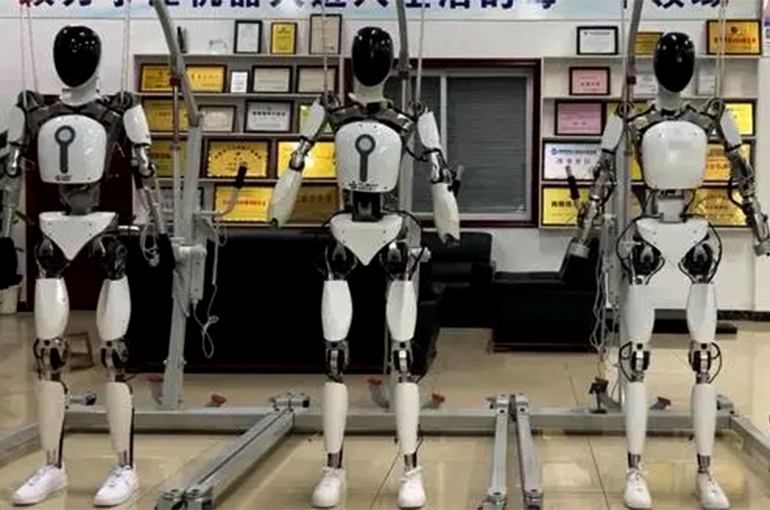 Chinese Android Makers Start Limited Production
Chinese Android Makers Start Limited Production(Yicai) Dec. 19 -- Some Chinese manufacturers of humanoid robots recently launched commercial production, mostly on a small scale, with two starting over the past three days.
Given the capabilities of the robot supply chain, the scale of single-batch production for domestic manufacturers in China typically does not exceed 100 units, an executive from a Beijing-based android maker told Yicai.
The first batch of Tianlian Robotics' humanoid robot model, the Tianlian T1 Pro, has been mostly delivered to customers, Chairman Hu Tianlian said to Yicai. The second batch is under production and will likely include around 15 units, Hu pointed out.
Most humanoid robot manufacturers in China are still in the small-scale production phase, general-purpose robot startup MagicLab and Beijing-based smart robot developer Zhongke Huiling, who have announced their respective mass production plans, told Yicai. From market and supply chain perspectives, small-scale production aligns more closely with the reality of the country's humanoid robot industry, according to a person from MagicLab.
To achieve mass production, robot makers need substantial capital, strong research and design capabilities, and adequate production capacity and supply chain management skills, He Jiyong, president of the Zhangru Information Technology Research Institute, said to Yicai. For a humanoid robot manufacturer, achieving batch production is an important indicator of their supply chain coordination capability, He added.
Batch production of complete humanoid robots requires a robust R&D team, Tianlian Robotics' Hu Tianlian noted. "Before batch production, manufacturers must continuously train prototypes to ensure compatibility between algorithms and the robot's hardware."
Despite the small batch size, some Chinese robot makers have managed to limit the production cost of a single humanoid robot to below CNY200,000 (USD27,400) by leveraging domestic supply chain advantages, with potential for further cuts, according to a senior official from a core component supplier for robot firms in Sichuan and Chongqing.
However, due to the development of general-purpose artificial intelligence models for humanoid robots still being in the immature phase, industry insiders are concerned about the limited scope of applications. Androids that are physically advanced but intellectually simple are not the smart tools the industrial sector hopes to see, an insider from the auto industry said to Yicai.
Developers of humanoid robot AI should work closely with those making the physical structure to achieve breakthroughs in smart technology and promote the machines' general application, said Yuan Shuai, deputy secretary-general of the Zhongguancun's Internet of Things Industry Alliance.
Editor: Martin Kadiev